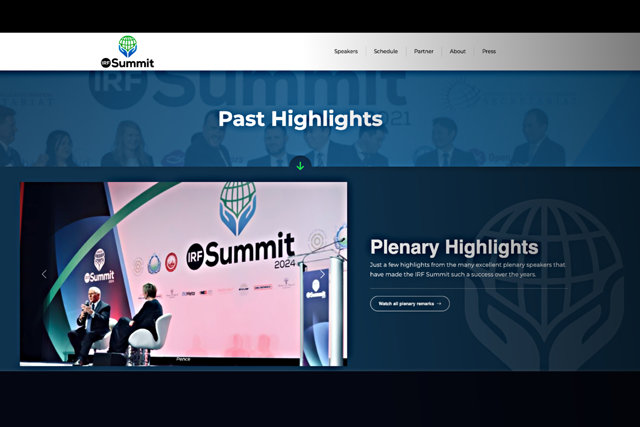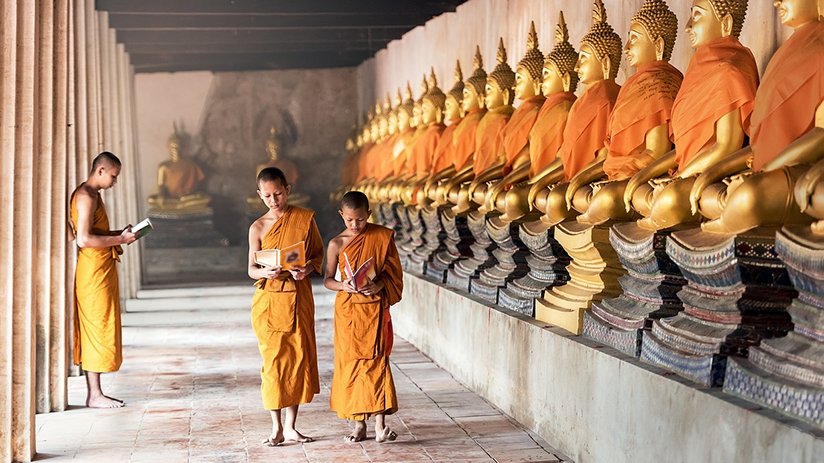
-
HOME
-
WHAT IS STANDOur Mission Our Values Our Help Contact
-
WHAT WE FIGHT FORReligious Freedom Religious Literacy Equality & Human Rights Inclusion & Respect Free Speech Responsible Journalism Corporate Accountability
-
RESOURCESExpert Studies Landmark Decisions White Papers FAQs David Miscavige Religious Freedom Resource Center Freedom of Religion & Human Rights Topic Index Priest-Penitent Privilege Islamophobia
-
HATE MONITORBiased Media Propagandists Hatemongers False Experts Hate Monitor Blog
-
NEWSROOMNews Media Watch Videos Blog
-
TAKE ACTIONCombat Hate & Discrimination Champion Freedom of Religion Demand Accountability
The 2024 International Religious Freedom Summit: Reflecting the Growth of a Human Rights Movement
Occurring over three days at the Washington Hilton Hotel, this year’s International Religious Freedom (IRF) Summit sounded the alarm over increasing abuses of minority faith communities internationally. The Summit, the largest gathering of religious liberty advocates and attendees this year, also emphasized the direct connection between religious freedom and national stability.

Religious freedom advocates—official government envoys, journalists, clerics, members of parliament, academics, journalists and others—heard over 70 speakers spotlight abuses of minority faiths in India, Ukraine, China, Nigeria, Latin America, the Middle East and elsewhere. Beyond leaders and lawmakers from both sides of the aisle, speakers also included heads of NGOs, artists and victims of egregious abuses of religious freedom.
“Countries and societies that protect their religious freedom are more likely to be safe and prosperous, and countries that do not protect religious freedom are less likely to be stable.”
The three days began with an “advocacy day” wherein representatives of different faiths met with lawmakers on Capitol Hill in order to enlighten, communicate and push for change in a world where an estimated 80 percent are restricted in the practice and expression of their faith. Two days of plenary and private sessions followed.
Co-chair and former IRF ambassador Sam Brownback opened the Summit and set the tone, emphasizing the crucial importance of religious freedom to the flourishing of human rights. “And boy, do we need some flourishing,” he said. “The great global human rights project has suffered decline in the last 20 years at the hand of expanding authoritarian regimes and sophisticated technology.”
Building on Brownback’s words, the current U.S. International Religious Freedom ambassador, Rashad Hussain, spoke to the vital necessity of religious freedom to national security. “Countries and societies that protect their religious freedom are more likely to be safe and prosperous, and countries that do not protect religious freedom are less likely to be stable,” Hussain said. “It is an essential part of our foreign policy and we see evidence for that all around the world.”
Panels and private sessions throughout the Summit covered topics including: “Corporate Responsibility for IRF,” “Concerning Trends in Latin America,” “Challenges in India for Non-Majority Faiths,” and “Violations Against Indigenous and Occupied Religious Communities.”
Speaking at the panel “IRF in the Context of Modern Culture,” actress and human rights activist Marisol Nichols described her own varied background as the daughter of a Catholic mother and a Jewish father, who was raised Southern Baptist and is, today, a 25-year member of the Church of Scientology. Making a point of the need to break through stereotypes of religion and color, Nichols recalled an episode of the popular TV series “24.” In it, she portrayed a Pakistani Muslim who works in the fictional Counter-Terrorism Unit (CTU). When a mole is suspected to have infiltrated the CTU, the guilty party is assumed to be her Muslim character, and she is forced to undergo abuse and torture before the mole is ultimately discovered to be someone else.
By making the point that we can’t afford to act according to our prejudices, the episode communicated that, “hey, we need to think again,” Nichols said. “America is made up of all different faiths, all different cultures… We have more responsibility to show that in a better light,” she said.
The ongoing genocide of China’s Uyghur Muslims was a recurring subject at the Summit. The Chinese Communist Party’s (CCP) torture, abuse and “re-education” of that religious minority “should not be a partisan issue,” House Speaker Mike Johnson said. Uyghur activist Rushan Abbas, also present at the Summit, was an unwilling witness to the brutality of the CCP when that government, in response to Abbas speaking out against their treatment of Uyghurs, jailed her sister.
Summit speakers also condemned the Nicaraguan government’s abuse of Catholics and evangelicals. Former Vice President Mike Pence said, “We are the most powerful economy on earth. And we ought to make it clear to Nicaragua that you will begin to respect the religious liberty of people of every faith or our relationship will change.” Nicaragua has enjoyed a free trade agreement with the U.S. since 2004.
While allotting the lion’s share of time to the world’s trouble spots for religious liberty, the Summit also devoted some hours to singling out progress and to those who have helped make that progress possible. The panels on IRF’s legal victories, innovations and bridge-building offered hope for the future of freedom of faith and religion. The panel “Women in IRF Leading the Way” gave four powerful IRF advocates—former U.S. Ambassador-at-Large for International Religious Freedom Suzan Johnson Cook; Multifaith Neighbors Network Outreach Director Hurunnessa Fariad; LEAH Foundation President Dr. Gloria Samdi-Puldu; and Women’s Peace Network founder and Executive Director Wai Wai Nu—an opportunity to share their challenges and successes in being, as Johnson Cook said, “the voice of the voiceless.”
The IRF Summit, now in its fifth year, has accompanied and reflected the growth of the international religious freedom movement in that short time. Consequently, IRF continues to garner increased recognition and importance in the diplomatic, economic and everyday conversations of the world.
Jeremy Barker, director of the Middle East Action Team for the Religious Freedom Institute, sees that connection. “In so many of the global crises around the world, there’s a religious freedom dimension,” he said. Religious freedom “is not marginal but mainstream.”









